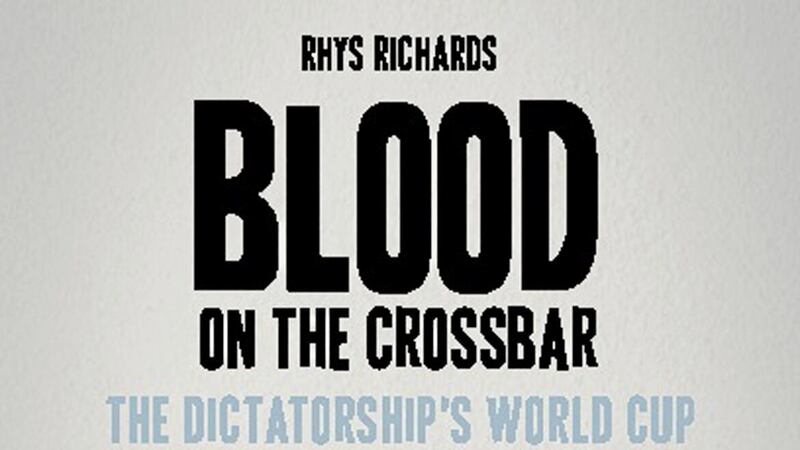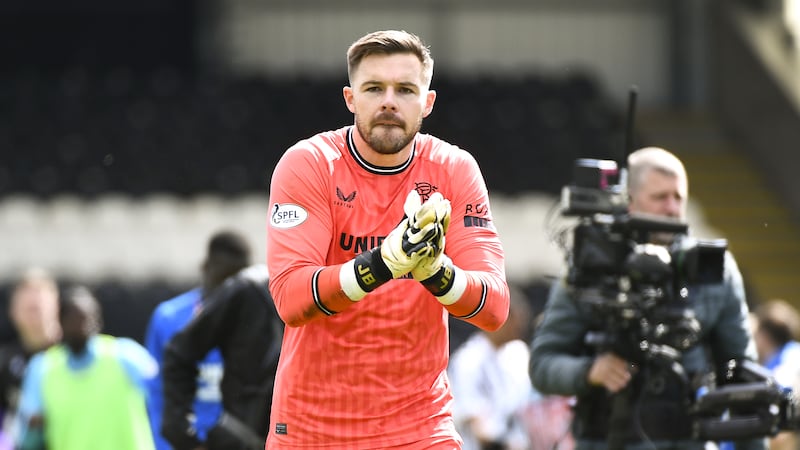ONE of the complaints by apologists/ paid stooges for the Qatari organisers of the current global soccer tournament goes along the lines that 'no one complained about Russia hosting the last World Cup'.
Utter balderdash, of course, as a cursory internet search or hunt through newspaper and TV archives will reveal.
Yet opposition to repressive regime hosting the 'Mondial' isn't just a modern phenomenon.
Don't let the boyish good looks fool you: the first World Cup I remember wasn't France '98 but Argentina '78 – and its military government's human rights abuses were highlighted, especially in Europe. Argentina staging the tournament was vehemently opposed by Amnesty International, who briefed journalists about the atrocities which had taken place and were still ongoing.
Many will remember that as 'the ticker tape World Cup', the unforgettable imagery of tens of thousands little pieces of paper falling from high up in the celebratory stands.
Yet people had also been falling from the sky in Argentina, those deemed 'enemies of the state' dropped from aeroplanes, often into the Rio de la Plata, the River Plate. Political prisoners were tortured in government detention camps.
One of the founder of Las Madres de Plaza de Mayo, the group of women who bravely publicly campaigned for answers about the whereabouts of their missing children, was Azucena Villaflor. She was abducted from her home in 1977, taken to a detention centre, and never seen alive again.
When her body was exhumed in 2003, her injuries were consistent with a fall against a solid surface.
The story of that tournament is brilliantly told in 'Blood on the Crossbar', sub-titled 'The Dictatorship's World Cup', a book by Rhys Richards, from the wonderful Pitch Publishing imprint.
As he wrote: "The tournament takes place amid a 'dirty war', where kidnap, torture and murder are practised on an industrial scale…
"Videla's right-wing authoritarian government would be responsible for the deaths and disappearances of between 15,000 and 30,000 Argentine nationals, political activists, left-wing sympathisers and subversives."
I wasn't really aware of all the human rights abuses at my tender age, although that World Cup did teach me the meaning of the word 'junta'.. My Scottish cousins were 'On the march with Ally's Army', singing that they were 'gonna win the wor-ild cup'. Yet even with King Kenny and Archie Gemmill both scoring - the latter a seminal solo effort - to defeat the team that had been expected to win the previous tournament, the Scots still slunk home early, not even reaching the knockout stage.
It was 1966 when Argentina was awarded the right to host World Cup – the same year their team, and particularly captain Antonio Rattin, were vilified by the English press. Rattin was controversially sent off in the '66 World Cup quarter-final against the hosts for 'violence of the tongue' – despite the German referee apparently speaking no Spanish.
Hosts had a habit of being favoured at World Cups…
Question marks still hang over Argentina's first ever triumph, but it's probably unfair to conflate regime and team.
There was a lot of weirdness at that last 16-team World Cup, even just on the pitch.
The four group winners? Italy, Poland, Austria, and Peru. Not a single top seed among that quartet, indeed the Poles were in pot 3 for the draw and Austria in pot 4.
The seedings eventually asserted themselves, after the second round, which was again on a group basis, as in 1974, with no quarter-finals or semi-finals.
Spoiler alert, Holland (as we called the Netherlands then) and Argentina topped Groups A and B respectively. The Dutch thrashed Austria 5-1, drew 2-2 with holders West Germany, then beat Italy 2-1 in what was effectively a semi-final.
Argentina's progress was much more controversial. Having drawn 0-0 with arch-rivals Brazil in their second match of the series, the hosts knew they had to improve their goal difference against Peru.
Brazil had beaten their other fellow South Americans 3-0 and defeated Poland 3-1.
Scandalously, Argentina had a much later kick-off, so they knew they had to win by four clear goals to top the group.
Controversy has always overshadowed that game.
Apparently the President of Argentina, General Jorge Videla, as Nazi-looking a dictator as you could fear to see, visited the Peruvian dressing room before the match. Along with him came former US Secretary of State, Henry Kissinger, a friend and protector of the Argentinian junta.
Extraordinary if true. However, one Peru player insisted that the visit came after the match.
There were also allegations of bribes to Peruvian players and government, grain shipments from Argentina to Peru, and even the arrangement of an exchange of political prisoners. The Peru goalkeeper was actually born in Argentina…
Strangely, though, I watched extended highlights at the weekend and saw little or no evidence of a fix. Peru struck the post early on, and pushed hard to take the lead.
Yet the hosts also hit the woodwork twice in the first half hour. Twice, too, I nodded on seeing clear fouls on Argentinian players, saying to myself, 'Yep, no doubt that's a penalty' – but nothing was awarded. Argentina also spurned chances.
The hosts had the 4-0 lead they needed five minutes into the second half, and were 6-0 up in the 82nd minute.
Basically Peru collapsed under the combined weight of their inferiority complex and Argentina's attacking brilliance.
They beat the Dutch 3-1 after extra time in the final, but to many it's still a tainted triumph. As Richards says:
"The shadow of the dictatorship loomed heavily over Cesar Luis Menotti's supremely talented Argentina team and has long undermined a squad who have fought for generations to be remembered for their abilities rather than their association with the military."
This too has been an entertaining World Cup, including shock defeats for giants including Argentina, Germany, and Spain, and progress for unfancied sides such as Morocco, Australia, and Senegal.
Besides the Argentina-Netherlands contest, the quarter-finals will also include England-France, Brazil against 2018 finalists Croatia, and Portugal against surprise packages Morocco.
As with Argentina in 1978, Qatar's attempt at 'nation branding'/ sports-washing has arguably backfired.
Ironically, the harsh spotlight has been shone on the abuses and repression in those countries, rather than the flattering soft focus they hoped to procure.
Hopefully the backlash will make other authoritarian regimes think hard about attempting to exercise soft power.




